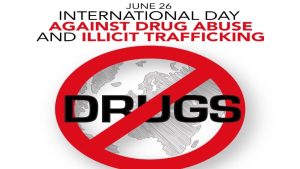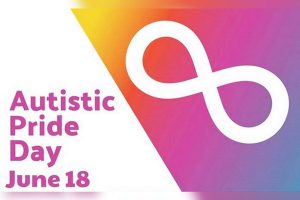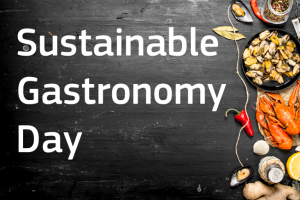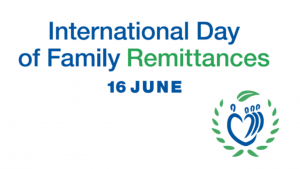 Nation observes “National Handloom Day” on 7th August every year. This day is celebrated to honour the handloom weavers in the country and also highlight the handloom industry. The Day highlights the contribution of handloom to the socio-economic development of the country and increases the income of the weavers. Nation observes “National Handloom Day” on 7th August every year. This day is celebrated to honour the handloom weavers in the country and also highlight the handloom industry. The Day highlights the contribution of handloom to the socio-economic development of the country and increases the income of the weavers. |
History of National Handloom Day:
|
 United Nations celebrates World Chess Day globally on 20 July every year. The day marks the date of the establishment of the International Chess Federation (FIDE) in Paris in 1924. It also provides an important platform to foster, dialogue, solidarity and culture of peace along with recognizing the instrumental role played by the FIDE in supporting international cooperation for chess activity and aiming to improve friendly harmony among all peoples of the world. To celebrate the International Chess Day 2020 top chess personalities will participate in a high-level virtual event “Chess for Recovering Better”. United Nations celebrates World Chess Day globally on 20 July every year. The day marks the date of the establishment of the International Chess Federation (FIDE) in Paris in 1924. It also provides an important platform to foster, dialogue, solidarity and culture of peace along with recognizing the instrumental role played by the FIDE in supporting international cooperation for chess activity and aiming to improve friendly harmony among all peoples of the world. To celebrate the International Chess Day 2020 top chess personalities will participate in a high-level virtual event “Chess for Recovering Better”. |
 International Day Against Drug Abuse and Illicit Trafficking is observed globally on 26th June every year. The day is observed by the United Nations as an expression of its determination to strengthen action and cooperation to achieve the goal of an international society free of drug abuse. The theme of International Day Against Drug Abuse and Illicit Trafficking 2020: “Better Knowledge for Better Care”. The main purpose of the theme is to improve the understanding of the world drug problem and at fostering greater international cooperation for countering its impact on health, governance and security. International Day Against Drug Abuse and Illicit Trafficking is observed globally on 26th June every year. The day is observed by the United Nations as an expression of its determination to strengthen action and cooperation to achieve the goal of an international society free of drug abuse. The theme of International Day Against Drug Abuse and Illicit Trafficking 2020: “Better Knowledge for Better Care”. The main purpose of the theme is to improve the understanding of the world drug problem and at fostering greater international cooperation for countering its impact on health, governance and security. |
|
 The International Maritime Organization is observed on 25th June as the Day of the Seafarer. On this day, people pay respect to Seafarers and sailors who help the entire world function by conducting sea transport. This year, the annual Day of the Seafarer (DotS) will be celebrating its 10th anniversary on 25 June. The 2020 campaign for the day: Seafarers are Key Workers. The campaign seeks to raise awareness of the work seafarers have done during the pandemic and to thank them for their contribution. It also encourages people to treat them with respect and dignity so they can continue the good work they have been doing. The International Maritime Organization is observed on 25th June as the Day of the Seafarer. On this day, people pay respect to Seafarers and sailors who help the entire world function by conducting sea transport. This year, the annual Day of the Seafarer (DotS) will be celebrating its 10th anniversary on 25 June. The 2020 campaign for the day: Seafarers are Key Workers. The campaign seeks to raise awareness of the work seafarers have done during the pandemic and to thank them for their contribution. It also encourages people to treat them with respect and dignity so they can continue the good work they have been doing. |
|
 World Hydrography Day is observed globally on 21st June every year. This day was adopted by the International Hydrographic Organization (IHO) as an annual celebration to publicise the work of hydrographers and the importance of hydrography. World Hydrography Day 2020 theme is “Hydrography enabling autonomous technologies”. World Hydrography Day is observed globally on 21st June every year. This day was adopted by the International Hydrographic Organization (IHO) as an annual celebration to publicise the work of hydrographers and the importance of hydrography. World Hydrography Day 2020 theme is “Hydrography enabling autonomous technologies”. |
|
 Autistic Pride Day is observed globally on 18th June every year. This day is observed to respect the rights of persons with autism. In 2005, the first autistic pride day was celebrated in Brazil by the Aspies For Freedom(AFF) created by Gareth & Amy Nelson and became a global event. A rainbow infinity symbol is used to represent neurodiversity which symbolises the infinite possibilities in the lives of autistic people. Autistic Pride Day is observed globally on 18th June every year. This day is observed to respect the rights of persons with autism. In 2005, the first autistic pride day was celebrated in Brazil by the Aspies For Freedom(AFF) created by Gareth & Amy Nelson and became a global event. A rainbow infinity symbol is used to represent neurodiversity which symbolises the infinite possibilities in the lives of autistic people. |
|
 Sustainable Gastronomy Day is observed globally on 18th June every year. This day is observed to acknowledge gastronomy as a cultural expression related to nature as well as the cultural diversity of the world. It also reaffirms that each one culture and civilizations are contributors and crucial enablers of sustainable development throughout the planet. Sustainable Gastronomy Day is observed globally on 18th June every year. This day is observed to acknowledge gastronomy as a cultural expression related to nature as well as the cultural diversity of the world. It also reaffirms that each one culture and civilizations are contributors and crucial enablers of sustainable development throughout the planet. |
|
|
 World Day to Combat Desertification and Drought is observed on 17th June every year. The day is observed to spread awareness among people about the cooperation required to combat desertification and the effects of drought. The World Day to Combat Desertification may be a unique occasion to remind everybody that desertification is often effectively tackled, that solutions are possible, which key tools to the present aim lay in strengthened community participation and co-operation in the least levels. The theme of World Day to Combat Desertification and Drought 2020: Food. Feed.Fibre. – the links between consumption and land. This year, it is running a campaign under the slogan “Food. Feed. Fibre.” which seeks to teach individuals on the way to reduce their personal impact. This year’s global observance event, hosted by Korea Forest Service, will happen online with a full-day program featuring a spread of exciting events and international talent. World Day to Combat Desertification and Drought is observed on 17th June every year. The day is observed to spread awareness among people about the cooperation required to combat desertification and the effects of drought. The World Day to Combat Desertification may be a unique occasion to remind everybody that desertification is often effectively tackled, that solutions are possible, which key tools to the present aim lay in strengthened community participation and co-operation in the least levels. The theme of World Day to Combat Desertification and Drought 2020: Food. Feed.Fibre. – the links between consumption and land. This year, it is running a campaign under the slogan “Food. Feed. Fibre.” which seeks to teach individuals on the way to reduce their personal impact. This year’s global observance event, hosted by Korea Forest Service, will happen online with a full-day program featuring a spread of exciting events and international talent. |
|
 International Day of Family Remittances is observed on 16th June every year. The day recognizes the contribution of over 200 million migrants to improve the lives of their 800 million family members back home and to create a future of hope for their children. This year International Day of Family Remittances is celebrated under the theme: “Building resilience in times of crisis”
International Day of Family Remittances is observed on 16th June every year. The day recognizes the contribution of over 200 million migrants to improve the lives of their 800 million family members back home and to create a future of hope for their children. This year International Day of Family Remittances is celebrated under the theme: “Building resilience in times of crisis”
|
The objective of the International Day of Family Remittances:
|
 The World Accreditation Day (WAD) is celebrated globally on 9th June every year to highlight and promote the role of accreditation in trade & economy. The International Accreditation Forum (IAF) and the International Laboratory Accreditation Cooperation (ILAC) decided the theme for WAD 2020 as “Accreditation: Improving Food Safety”. The two accreditation boards of the Quality Council of India (QCI) namely National Accreditation Board for Testing and Calibration Laboratories (NABL) and National Accreditation Board for Certification Bodies (NABCB) celebrated the World Accreditation Day 2020 by organising a webinar focussing on “Regulator’s perspective on food safety” and “Industry’s Perspective on food safety”. The World Accreditation Day (WAD) is celebrated globally on 9th June every year to highlight and promote the role of accreditation in trade & economy. The International Accreditation Forum (IAF) and the International Laboratory Accreditation Cooperation (ILAC) decided the theme for WAD 2020 as “Accreditation: Improving Food Safety”. The two accreditation boards of the Quality Council of India (QCI) namely National Accreditation Board for Testing and Calibration Laboratories (NABL) and National Accreditation Board for Certification Bodies (NABCB) celebrated the World Accreditation Day 2020 by organising a webinar focussing on “Regulator’s perspective on food safety” and “Industry’s Perspective on food safety”. |
You need to login to perform this action.
You will be redirected in
3 sec
